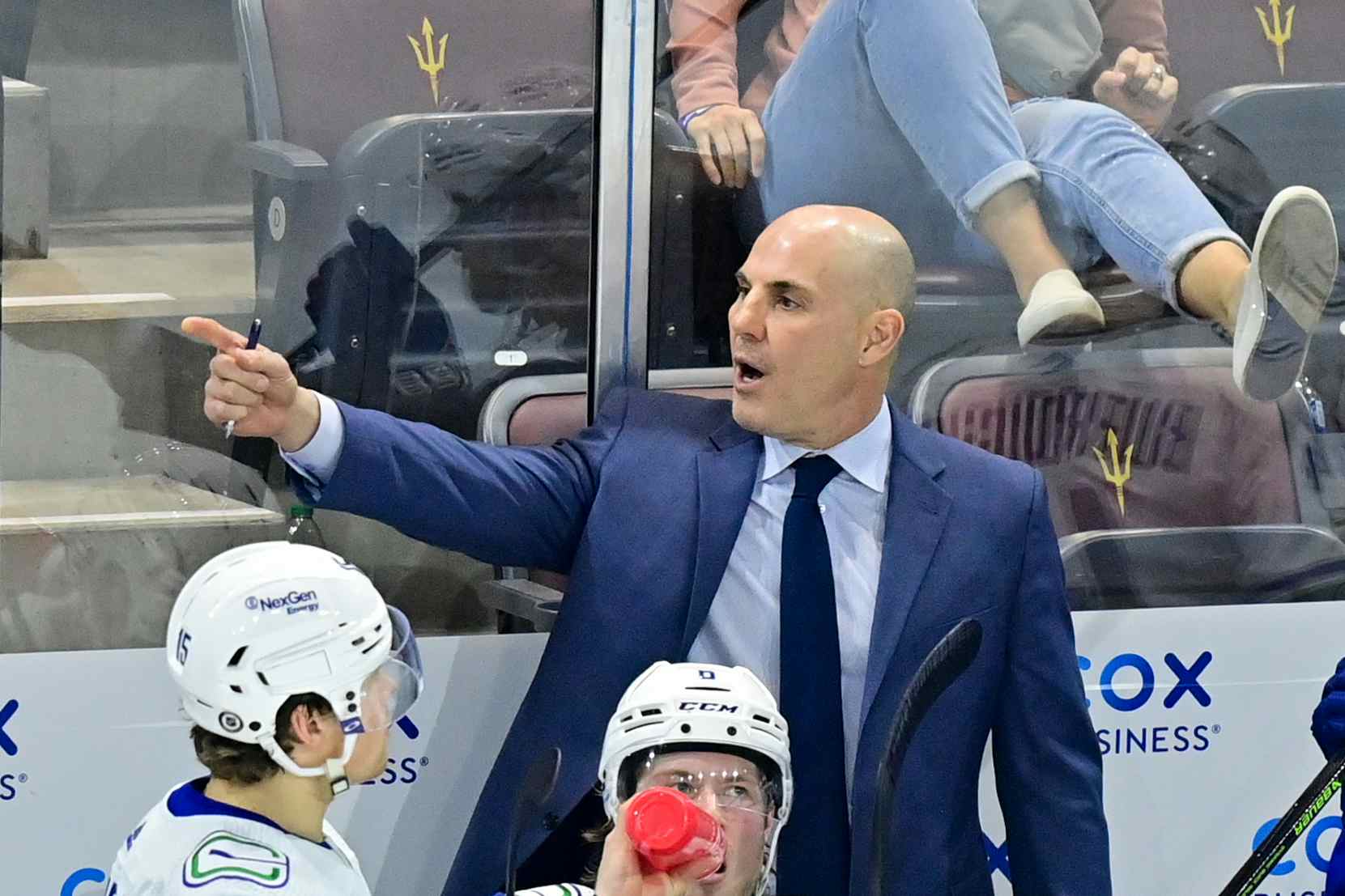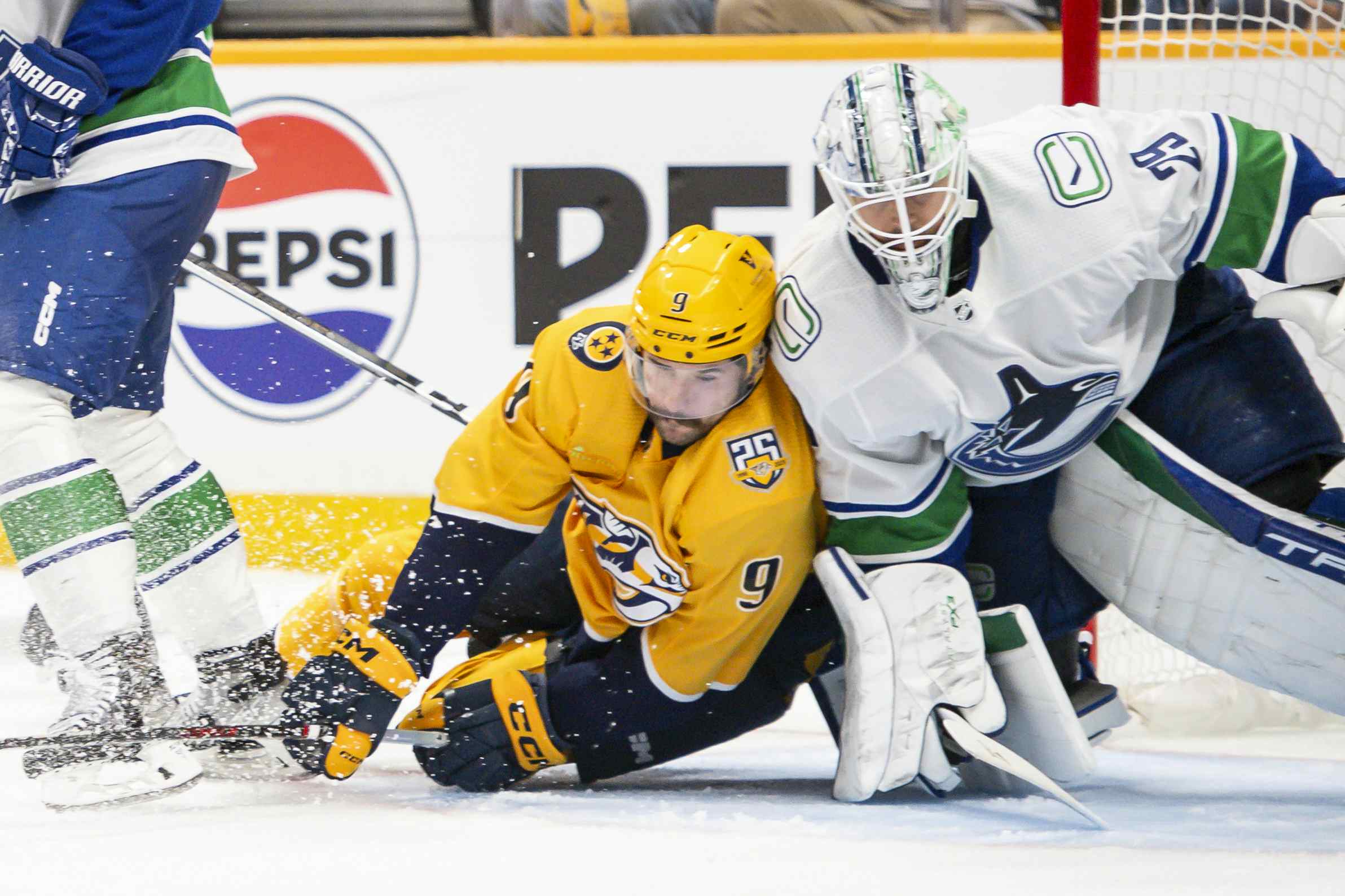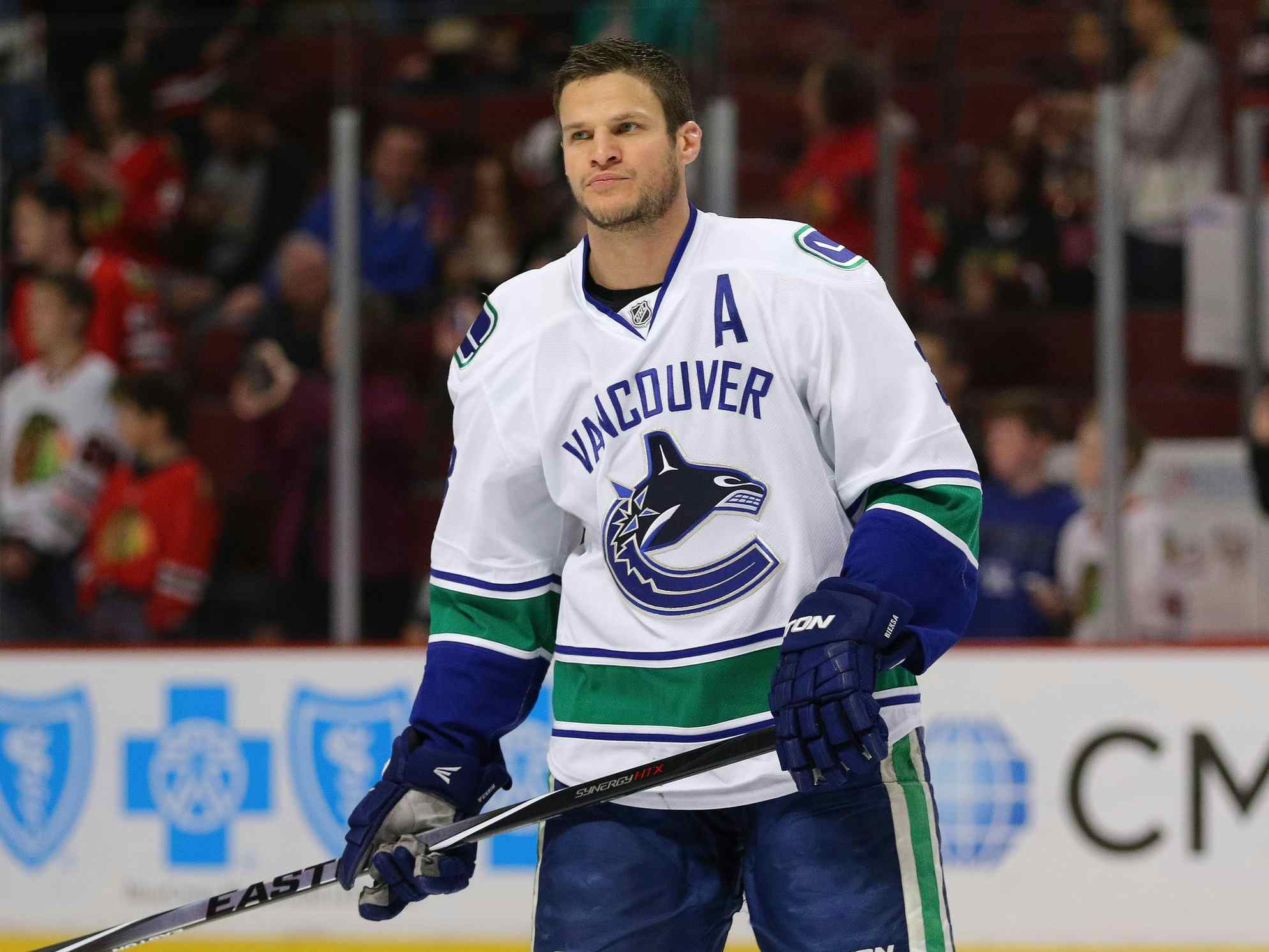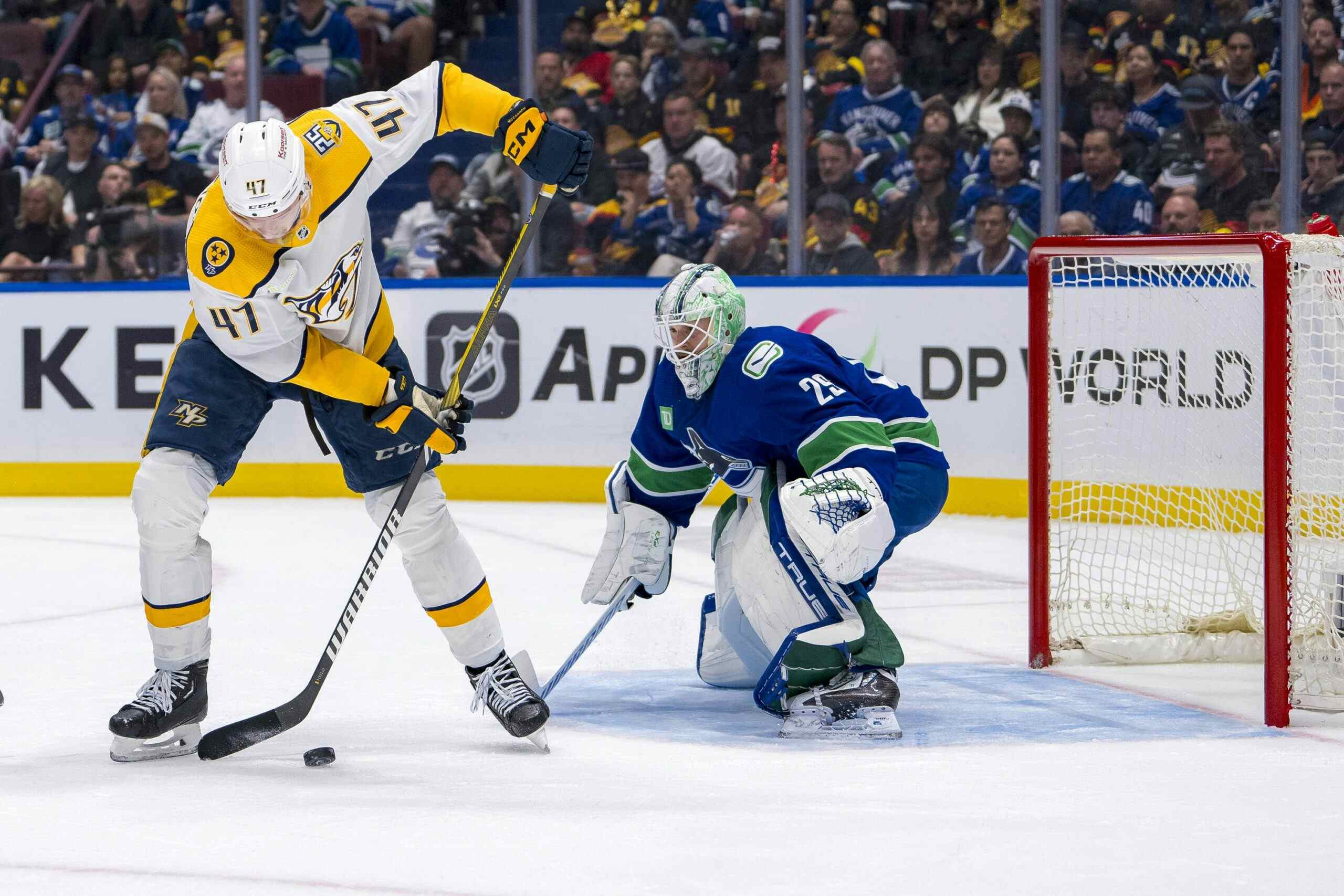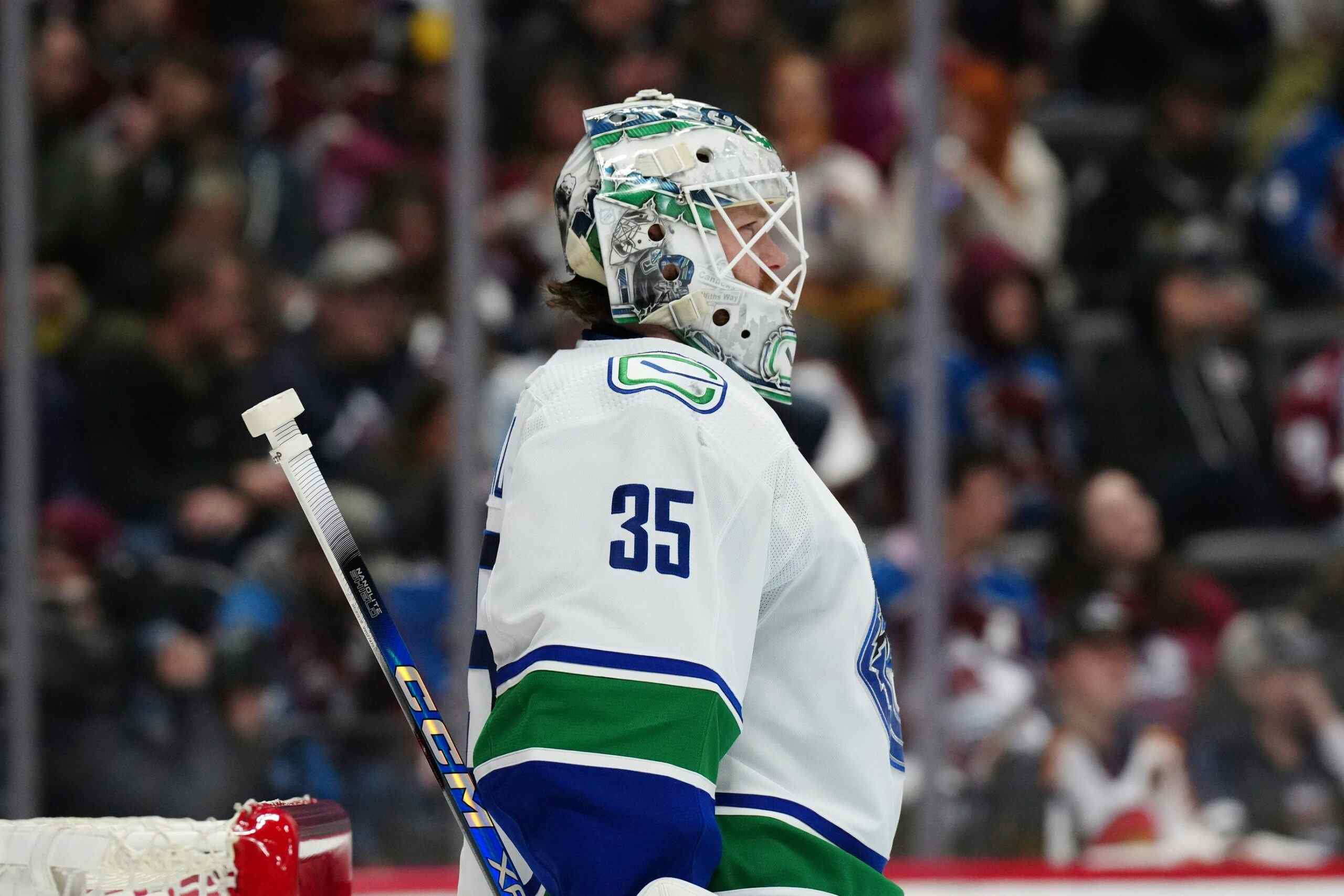What to do with Quintin Hughes
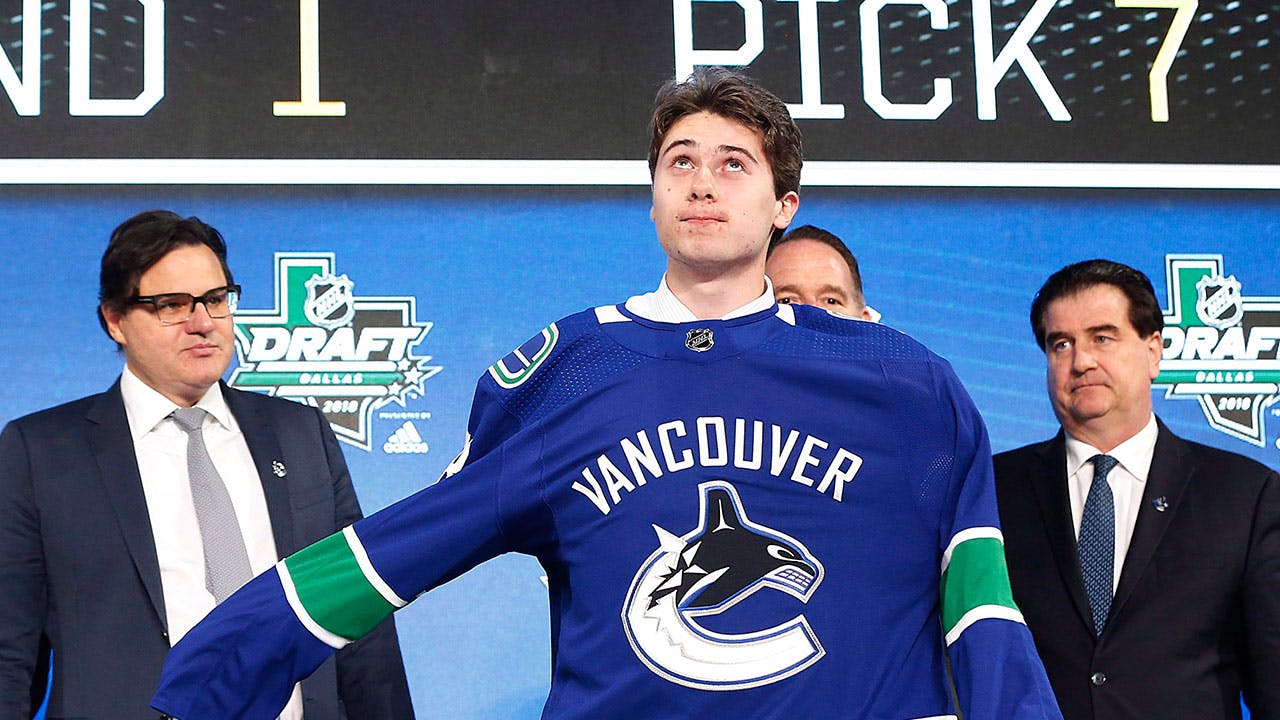
5 years ago
At the 2018 NHL Entry Draft, the Canucks added a dynamic puck possession defenceman in Quinn Hughes, who gives them something that they have severely lacked for many years.
With Hughes in the fold this summer, there has been a lot of discourse about where the young American defender should play this upcoming season. The two options, turn pro or head back to the NCAA, are being dissected on a daily basis on the radio or in print. Figured, it’s time to throw my thoughts into the mix and weight the pros and cons of each avenue.
Back to the NCAA
The easiest path for Hughes and the organization is for him to head back to the University of Michigan for another year.
It’s not crazy to suggest that a player in their D+1 heading back to collegiate hockey is the normal path. He would be the leader on the backend for the Wolverines that will look to take the last couple of steps to an NCAA championship after falling in the Frozen Four this past season.
Hughes would also be a large part of the defensive group for the United States at the World Juniors here in Vancouver.
Both of these things allow him to be a leader for his team and looked upon to carry his team in all three zones. There is value in all of that and something that shouldn’t be viewed as a terrible thing to happen. He would also be able to spend another year developing physically.
Sign an Entry Level Contract – Head to the AHL
There is an option that hasn’t been really discussed too much in regards to Hughe’s suspected path.
If the 7th overall pick opts to turn pro, sign an entry-level contract and fails to make the team out of camp – he could be assigned to the AHL.
There are some contract benefits to having him spend the entire year in the minors. Outlined in Article 9.1(d-i)
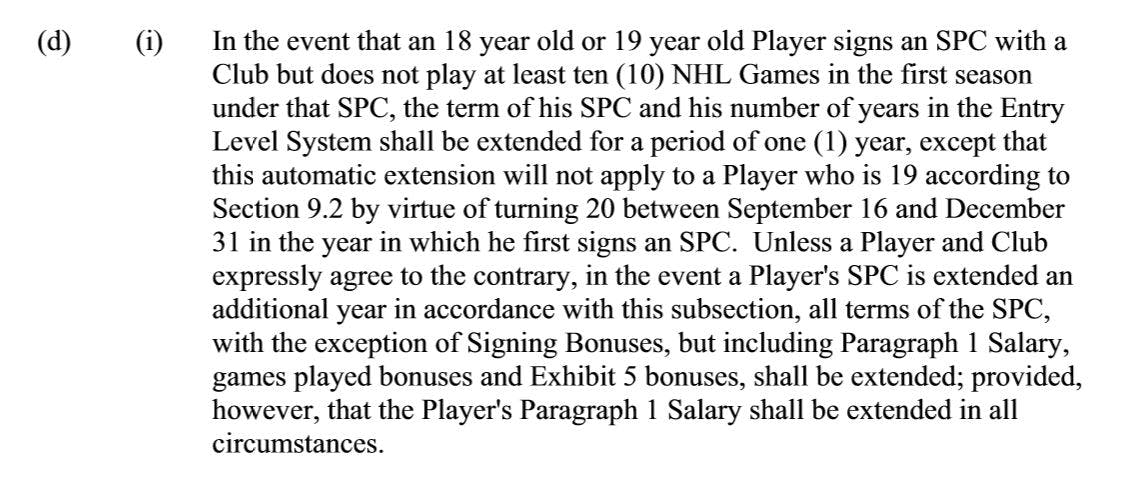
If Hughes were to sign his entry-level contract and does not appear in 10 NHL games during the 2018-19 season, his contract would slide for another year. If that were to happen, Article 9.1 (d-ii) takes it another step further for the 2019-20 season:
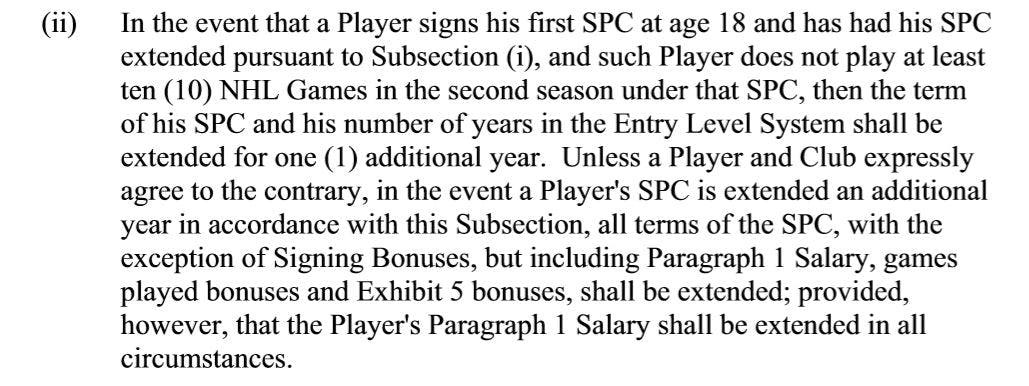
If he didn’t appear in more than 10 games during that year, his contract would slide again.
Spending two full years in the AHL is unlikely to happen but it is something that would be discussed by Canucks management and in the back of the minds of their minds.
The contract benefit for the upcoming season would be helpful in allowing the Canucks to stagger the next contracts for their top prospects. If Pettersson and Hughes were to make the Canucks this year, both of their deals would be up prior to the 2021-22 season. It’s important to note that the Canucks really don’t have any cap space worries in the coming years, so this isn’t to say they have to do this and merely a covering all the bases type of exercise.
With Hughes in the AHL, the organization could loan him to USA Hockey for the World Juniors, where he can be the leader on the back-end for them.
While playing in AHL, Hughes would be seeing a lot of ice time with the group of prospects (Kole Lind, Jonathan Dahlen, Thatcher Demko etc.) that the organization hopes will make up the nucleus of their rebuild efforts. He would be able to log big minutes in all situations and the be the man on the power-play.
From a financial standpoint, Hughes would make $70,000 in salary from his ELC and his signing bonus, which I would assume would be $92,500.
Sign an Entry Level Contract – Head to the NHL
The most dissected outcome out of all of this is that Hughes will sign his NHL contract and makes the team out of camp. The kid thinks he is ready, it’s just up to management to decide if it’s the right way.
It’s fair to say that Hughes is one of the most talented defenders that the Canucks currently have in their system and would provide immediate benefit. Place him in a sheltered role with heavy powerplay time and let him work his way up from there.
The option of being loaned to the World Juniors isn’t out of the question, but less likely. But the Canucks would have an offensive defender helping the likes of Brock Boeser, Bo Horvat, and Elias Pettersson generate offence in the NHL.
The Canucks currently have seven defenders under contract for next season and still have to work out a contract with RFA Troy Stecher – so work will have to be done there, but if Hughes is good enough to make the team out of camp, they’ll make the necessary moves. He may not get a regular role right out of camp, despite being talented enough to do so, but injuries happen and it would only be a matter of time before he is suiting up every night.
If they don’t want him sitting in the press-box, he could also see some time in the AHL here and there and then get recalled as the opportunity arises in the NHL.
There is concern about his size and how he can handle the rigours and duration of an NHL season.
Each path has a different benefit to the long-term development of the Canucks newest top prospect.
College would allow him another year to physically develop and work on being a leader for a variety of teams. Signing and heading to the AHL would provide him with some money in the bank, some interesting contract benefits to the organization, and allow him to get accustomed to professional hockey. Making the leap straight to the NHL is the trial by fire path but could provide unheralded benefits.
Honestly, you can’t really fault Canucks management for any path taken here.
In the long run, it’s imperative that the Canucks get the best player possible out of Hughes and figuring out how to get that can be tough. There is never any harm in taking the longer path in these formative developmental years but the idea of Hughes in a Canucks jersey this fall would be a fun ride.
We’ll likely find out in the coming days of what path has been chosen.

